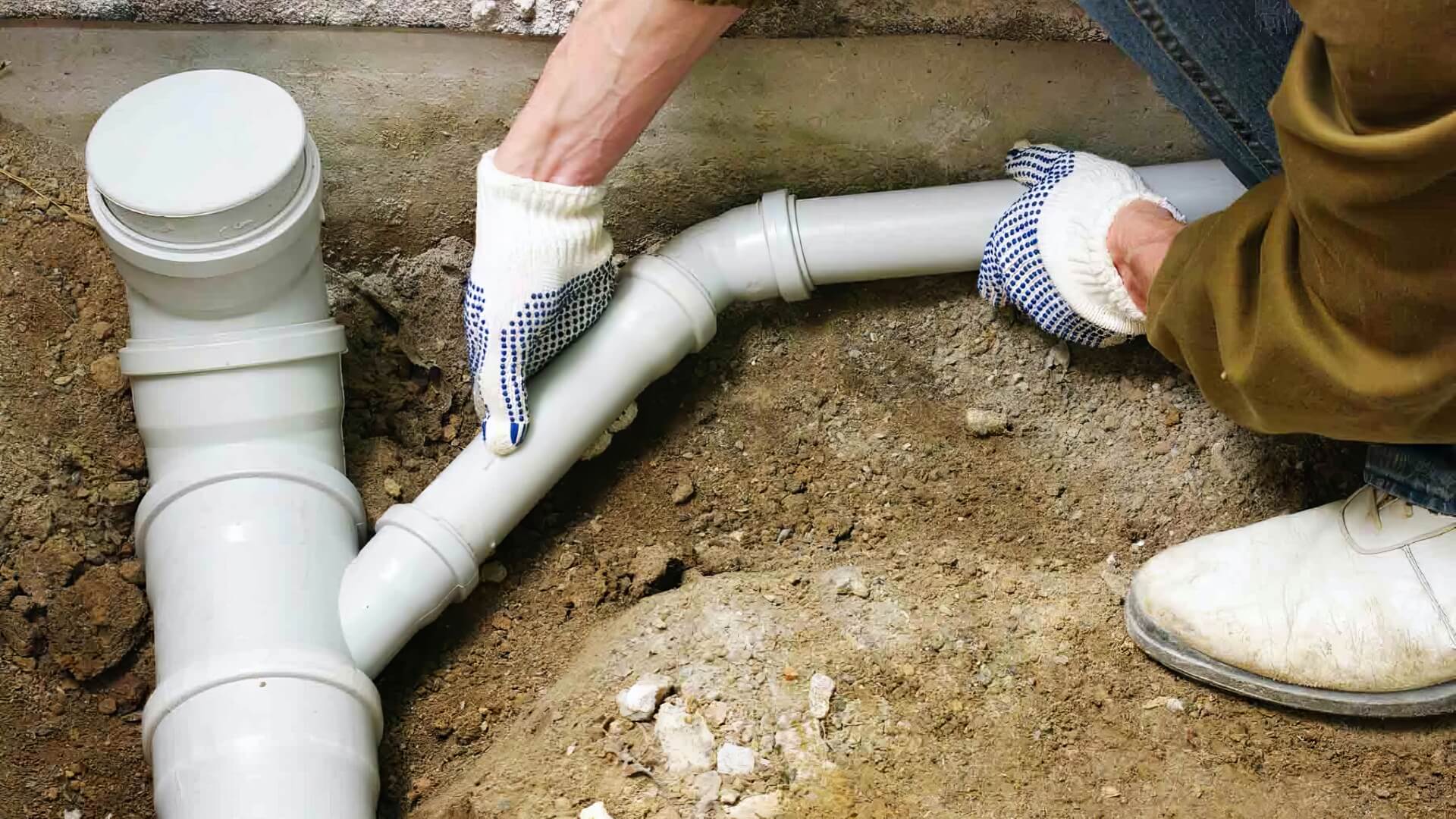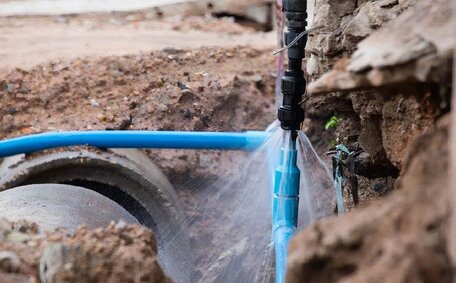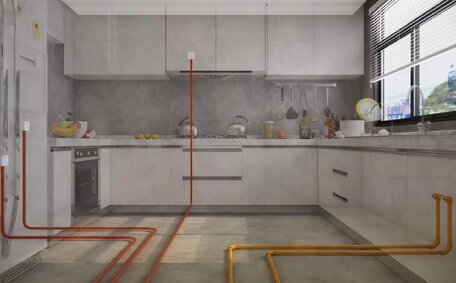Welcome! This article aims to guide you on what to avoid putting down your drains to prevent blockages, pipe damage, and environmental harm.
Discover common household items that can clog pipes, cause overflows, or interfere with water treatment processes, along with practical disposal tips to ensure free-flowing drains and protected waterways.
We’ll outline appropriate disposal methods for scraps, chemicals, and waste, emphasising the maintenance of optimal plumbing health.
Common Household Items That Clog Drains
Use appropriate disposal methods for items that are unsuitable for plumbing to avoid risking a clog. The following should not be flushed or poured down drains:
- Food scraps - Fruit peels, egg shells, coffee grounds, and other food items. Compost these instead.
- Fats, oils, and grease, such as bacon grease and dairy products, solidify upon cooling and lead to clogs. Dispose of them in the trash once solid.
- Hair - From bathing, grooming pets, shaving. Catch with drain screens instead.
- Paper products - Paper towels, tissues, items should include cotton buds to be recycled if possible.
- Plastics - Plastic items can include food wrappers, bottles, takeaway containers. Recycle when possible.
Coffee Grounds
Avoid putting coffee grounds down your drain; their abrasive nature grips onto residues, posing a hazard to your plumbing. Over time, coffee particles end up compacted which can lead to a full blockage of water flow.
An average sinkful of grounds contains over 500,000 individual granules. Multiply this by daily usage in homes and cafes, and you have trillions of insoluble grains entering pipes across entire neighbourhoods.
A teaspoon of grounds here or there seems harmless. But collectively this volume creates severe blockages at central processing plants too. Coffee waste must be kept out of any drain and disposed of correctly.
The best practice is to bag used coffee grounds and dispose of them in the rubbish bin, not down the kitchen drain. Consider composting coffee grounds, using them as garden fertilizer, or making a body scrub; check if your council accepts them for composting.
Also avoid pouring liquid coffee down the drain; its oils and compounds can cause stains and odours. Hot water is ineffective in flushing away coffee sediment, so always discard liquid with the grounds.
Food Waste
Avoid disposing of certain leftover food scraps through your disposal system. Never dispose of items like rice, pasta, bones, and fibrous peels in your garbage disposal to prevent clogs.
Starchy foods like rice and pasta can swell and get stuck in pipes, leading to clogs, even in small volumes. Rice, like eggshells, remains undissolved, and fruit peels and strings resist breakdown, causing plumbing issues.
Compacted food residues can combine with fats, soap curds, hair, and other debris, eventually creating dense masses that obstruct water flow and cause backups.
To protect your drains, contain all unused food products and scraps for proper recycling. Items that shouldn’t go down sink can also get placed in your kitchen scrap bin, or your backyard composter. Some councils provide services for food waste that could otherwise end up being flushed down your toilet - check local guidelines.
Avoid putting solids down the kitchen sink or drains intended only for greywater. Only wastewater necessary to transport particles should go down kitchen, laundry, and bathroom sinks to reach main drains.
Medications
Flushing medications down toilets or sinks can potentially contaminate the water supply and harm aquatic ecosystems with trace amounts of drugs.
Hormone therapies and antidepressants may adversely affect the reproductive health of fish and amphibians. Antibiotic residues can encourage harmful antimicrobial resistance in ecosystems.
Your septic sewerage systems are not fully equipped to remove pharmaceutical compounds. So metabolised drug traces inevitably reach our drinking water sources.
To prevent contamination, your own medications should never enter household drains. Instead, keep prescriptions in original containers until finished, then dispose at free drop-off sites run by pharmacies or councils.
If no drop-off service is available, place drugs in a sealed plastic bag with unwanted food scraps or used cat litter, then put your household rubbish bin on collection day.
Using these proper disposal methods keeps potent pharmaceuticals safely out of sewers and waterways. Ensure unused medications are not flushed down the toilet to shield our environment from contamination.
Flushable Wipes
Despite being labelled 'flushable’, wipes should not enter the sewer system because they do not break down like toilet paper, leading to blockages.
These products contain strong fibres that do not break down in water, leading to significant blockages.
Wastewater operators spend huge sums to get rid of wipe-related stoppages. These wipes can cause problems, and The cost of their removal ultimately falls on consumers through water utility bills.
Raw sewage overflows into waterways can result from faulty pumps and treatment failures due to accumulations of flushable wipes. This sparks serious environmental harm and health risks.
The best practice is to dispose of so-called flushable wipes in the general waste bin. Standard baby wipes and cleaning wipes should be placed in the garbage bin rather than risking clogs in the toilet.
Explore more about the zero-waste alternative of reusable cloth wipes instead. These launder cleanly while keeping plastics out of landfill and sewers.
Understanding what happens when you swap flushable wipes for reusables, and not putting unwanted water down the system, you help preserve pipe capacity and ecological health.
The Environmental Impact
Improper disposal of waste down drains can have significant environmental repercussions. When non-flushable items enter sewers, they can disrupt wastewater treatment processes and damage infrastructure.
A 2019 study found over 11,000 tonnes of flushed wet wipes accumulate inside UK sewers annually. Globally, masses of wipes and debris cause hundreds of millions in damage, necessitating frequent maintenance and repairs.
Blockages stemming from inappropriate flushing also heighten the risk of raw sewage overflows. During heavy rains, overflow mechanisms are meant to safeguard treatment plants, yet this can lead to untreated effluent entering water bodies globally.
The toxic exposure sparks algal blooms and fish kills. One incident in 2020 saw up to 10,000 fish perish in a regional Australian river after such an event. The ecological impacts spread across entire aquatic food chains.
Pharmaceutical residues entering waterways through sewage overflows can severely disrupt aquatic ecosystems. Even infinitesimal levels of hormones, antidepressants and antibiotics bring reproductive harm to fish and frogs.
Keeping drains clear and avoiding sewer system misuse can significantly reduce ecological damage. Responsibly containing waste does your part in protecting wildlife while securing infrastructure for future communities.
And consider contacting local representatives regarding upgrading sewage treatment plants in your area to handle modern waste volumes.
Proper Disposal Methods
But with so many different materials involved, where do you start?
For used cooking oil, grease, and fats - you should never put these down the sink, so the disposal process is crucial. Small amounts of cooled bacon grease or leftover oils can put safely in a drain-safe container for the rubbish bin. Larger volumes, such as those from motor oil changes, require professional recycling instead.
Many councils offer free oil and fat drop-off stations for proper recycling into biodiesel fuels. Instead of risking drain blockage, these local council waste sites process oils into sustainable resources. Check with your local authority on available locations.
Avoid placing unwanted medications into household garbage disposal systems. Pharmacies provide special pharmaceutical waste bins for safe containment before professional incineration. If no drop-off bins exist nearby, place pills in sealed plastic bags with regular rubbish.
Ensure that leftover paint is fully dried out before disposal to prevent environmental harm. Ensure no leftover paint down any drain; mix in baking soda or cat litter to solidify it first. Using these channels keeps paint toxins out of landfill, water supplies, and habitats.
Other items like hair, dental floss, and small plastics are things that should never go down the sink. Wherever possible, repurpose these items, or place them in rubbish destined for landfills with containment processes. The goal is to prevent loose materials from make their way through the system.
With an array of waste involved, doing your local research is key - council guidelines, private recyclers, and facilities vary regionally. But using best-practise disposal and repurposing ultimately benefits infrastructure, the planet, and future communities.
Maintaining Healthy Plumbing
Preventing issues that go down kitchen drains is the top priority for healthy plumbing. There are simple, daily habits that safeguard pipes:
- Use sink strainers to catch food scraps and hair. Empty strainers into the bin regularly.
- Limit fats oils grease you allow to flow down the drain. Cool then store hardened fats in bins.
- Flush only human waste and toilet paper. Bag all other trash.
- Consider reusable products instead of flushable wipes or the traditional paper towel.
- Install hair catchers in your shower and sink drains as added protection.
Even with diligent habits, your drain can benefit from professional maintenance periodically:
- Annual inspections can help uncover hidden issues early before major damage or overflows.
- Hydro jetting blasts away years of internal buildup, preventing a blocked drain for free flowing pipes.
- Camera scans diagnose damaged pipes needing repair or replacement.
- Chemical drain cleaning dissolves stubborn blockages and odours.
Our licenced plumbers offer complete drain servicing to keep systems clear. We also offer solutions for blocked drains, including fixtures upgrades with eco-smart toilets, taps and recycling drains. Contact us anytime for repairs or optimised plumbing solutions for your home.
Conclusion
In closing, being mindful of what goes into your drains is crucial for avoiding plumbing disasters and environmental harm. Improper disposal of certain products can significantly damage your pipes or lead to water contamination.
By following our advice, like avoiding pouring bleach down drains, you help ease the wastewater burden. Composting food waste, trashing non-flushables, and recycling oil and paint enables infrastructure to run efficiently.
Making small daily changes helps to safeguard and keep our waterways clear along with your sink and sewer lines flowing freely. Clogged drains become less likely, saving potential repair costs. By ensuring nothing unsuitable is put down your kitchen sink, you help maintain effective treatment systems and prevent toxic overflows.
We hope these practical tips clarify what put down and what not in your home plumbing. Please contact our team at Hurstville Plumbing for professional assistance protecting your drains. Call 1300 349 338 for trusted servicing and upgrades tailored to your household needs.






